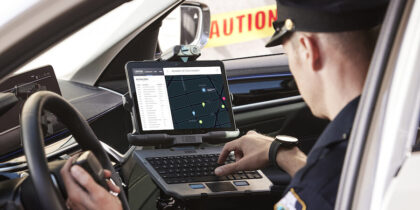As the world moves to an always-on, always-connected paradigm, government agencies are embracing the idea of equipping their employees with mobile devices, services and applications. They recognize that giving workers access to people and information from anywhere — whenever they need it — boosts productivity, drives collaboration and improves outcomes, but requires extensive mobility management.
A global Frost & Sullivan survey of 160 IT decision makers in the government sector reveals that the biggest challenge facing government organizations is making effective and timely investments in IT. But they recognize the value of mobile devices in the workplace: almost two-thirds report allowing employees to use smartphones for work purposes, and more than half say tablets are regularly used, too.
Still, our survey respondents rightly expressed concerns over mobile technology and mobility management. Deliberate attacks — whether through malware, crime or espionage — are the most feared security risks. Mobile apps and services, as well as the “bring your own technology” (BYOT) trend, are most concerning to these IT executives, who worry about what security threats they might introduce to their networks and devices. And of course, those who work in defense and other highly sensitive or classified areas have even stronger concerns around data management and protection.
Government agencies that want to see value from their mobility initiatives and investments must put security and management first. But they must balance that with the need to create a program that’s convenient for both end users and IT staff. That way, government can confidently get beyond security concerns and utilize mobile devices for various line-of-business use cases, ranging from field service and logistics to law enforcement and tactical military deployments.
To learn more about mobility management initiatives in government, read the white paper below.
Mobility Management Makes Government Work: Security, Management and Control from Samsung Business USA







